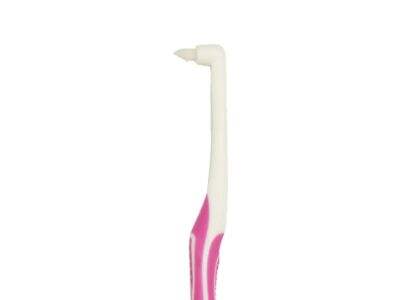Get Your Teeth Cleaned Every 6 Months at the Dentist — But Did You Know? And also extremely important to use interdental brushes! These are special brushes that help clean the small spaces in between your teeth where food may find itself wedged. Even with brushing, tiny food particles can linger in those spaces. Rubber interdental brushes are ideal for cleaning teeth as it is flexibly designed to slip easily into tight spaces. Dr. Smith has an entire variety of rubber interdental brushes that suit everyone, regardless of how large or small the gaps between the teeth are.
How to Find the Right Fit for Your Teeth
In terms of interdental brushes one size definitely isn’t for all! That requires you to select a brush that comfortably fits between your teeth. If it’s too small, the brush can’t scrub the spaces properly. Having a too large of a brush head may injure your gums, causing them pain or bleeding. Which is why choosing the right size for your mouth is really important.
How to Choose the Right Rubber Interdental Brush?
Dr. Smith has rubber interdental brushes designed in various widths for various widths of gaps between teeth. If you have small spaces between your teeth, one small or extra-small head brush will suit you well. A medium brush is suitable for a person with standard-sized gaps. And for wider spaces in your mouth, large brush is the best choice. And Dr. Smith sells brushes of various shapes, such as conical and cylindrical, to work on teeth with various shapes. That way, no matter what kind of teeth you have, there is a brush that helps you keep them clean.
How to Choose the Right Size Rubber Interdental Brush
Are you struggling to determine which rubber interdental brush to use? Don’t worry! Below are some useful tips to help you decide the best size for your teeth:
Check the size of the gaps: Look at how big the spaces are between your teeth. If you’re not certain what brush size is best for you, consult your dentist for more information.
The shape of your teeth: Consider how your teeth are shaped. Use a round cylindrical brush to clean round teeth. If your teeth are triangular, then you will benefit more from using a cone-shaped brush.
Tip #1: Look for comfort: Make sure you’re picking a brush from which you feel comfortable in your mouth. It shouldn’t hurt or bleed when you use it. If it does, that could mean it’s the wrong size for your body.
Interdental Brushes Sizes Guide (Rubber)
Dr. Smith provides a helpful size guide that can help you choose the right rubber interdental brush. Sizes are denoted as XS (extra small) and go up to L (large). Here’s a guide to what each size means:
XS (extra small) - These toothbrushes have a head size of 1.9 mm, making them suitable for very tight intervals of teeth, where other toothbrushes cannot enter.
S (small) - The brush head size is 2.5mm, perfect for small gaps that need cleaning.
M (medium) - These brushes are 3.0mm at the head, and the perfect size for most typical gaps between teeth.
L (large) - These brushes have a head size of 5.0mm and are specifically made for cleaning gaps as wide as they come.
 En
En
 AR
AR
 BG
BG
 CS
CS
 DA
DA
 NL
NL
 FR
FR
 DE
DE
 EL
EL
 HI
HI
 IT
IT
 JA
JA
 KO
KO
 PL
PL
 PT
PT
 RU
RU
 ES
ES
 SV
SV
 TL
TL
 IW
IW
 ID
ID
 UK
UK
 VI
VI
 HU
HU
 TH
TH
 TR
TR
 FA
FA
 MS
MS
 GA
GA
 BE
BE
 AZ
AZ
 KA
KA
 BN
BN
 LA
LA
 NE
NE
 MY
MY
 KK
KK
 TG
TG
 UZ
UZ
 KY
KY

